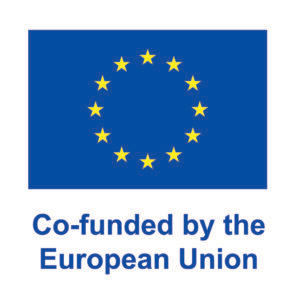SLog4.0
Sustainable Logistics4.0: Digital and green skills for boosting innovation and sustainability of the logistics sector
But... how was SLog4.0 project financed?
The aim of Slog4.0 project is to train a new generation of advanced workers for the logistics sector, with a sustainability-oriented mind-set referring to the Industry 4.0. The project wants to increase the digital capacities of higher education institutions and to support sustainable and green logistics for the future reshaped by pandemic and climate sensitivity.
If you ever asked yourself which institution does finance a project interested in reaching a higher level of sustainability in the logistics processes and in the analysis of the impact that the 4.0 technologies can have in the sector, you will be interested in reading this article.
Let us start by saying that Slog4.0 is a project financed in the framework of ERASMUS+, which is the European Union’s programme to support education, training, youth and sport in Europe. Its budget of €26,2 billion (for the period 2021-2027) provided opportunities for over 4 million Europeans to study, train, gain experience, and volunteer abroad. Erasmus+ does not just present opportunities for students. Merging seven prior programmes, it has opportunities for a wide variety of individuals and organisations.
In the rich menu of the opportunities offered by Erasmus+, there are also the so-called“Cooperation Partnerships”.And this is the scheme that allowed us to have our project financed!
The primary goal of Cooperation Partnerships is to allow organisations to increase the quality and relevance of their activities, to develop and reinforce their networks of partners, to increase their capacity to operate jointly at transnational level, boosting internationalisation of their activities and through exchanging or developing new practices and methods as well as sharing and confronting ideas. They aim to support the development, transfer and/or implementation of innovative practices as well as the implementation of joint initiatives promoting cooperation, peer learning and exchanges of experience at European level. Results should be re-usable, transferable, up-scalable and, if possible, have a strong transdisciplinary dimension. Selected projects will be expected to share the results of their activities at local, regional, national level and transnational level.
Slog4.0 is giving its contribution to reaching all the main objectives of the program and is also encompassing the main features of a Cooperation Partnership project, as it aims at:
- Increasing quality in the work, activities and practices of organisations and institutions involved, opening up to new actors, not naturally included within one sector;
- Building capacity of organisations to work transnationally and across sectors;
- Addressing common needs and priorities in the fields of education, training, youth and sport;
- Enabling transformation and change (at individual, organisational or sectoral level), leading to improvements and new approaches, in proportion to the context of each organisation.
The SLog4.0 consortium is hardly working on the first tasks of the project and is showing a great collaborative spirit to reach the identified targets, in order to stimulate innovative learning and teaching practices and to support digital and green capabilities of the higher education sector, as the call requires.


